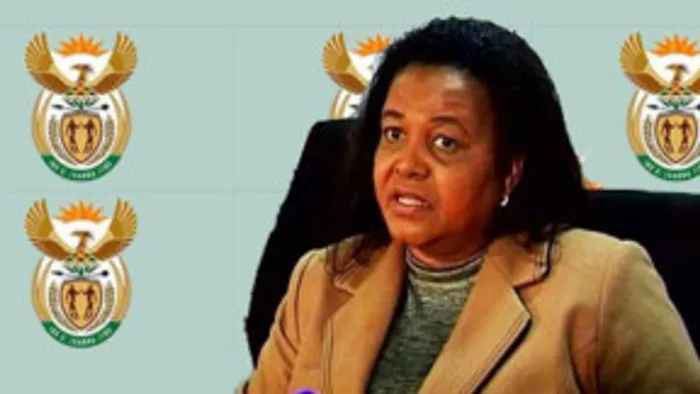
Environmental Affairs Minister Edna Molewa Environmental Affairs Minister Edna Molewa
Melanie Gosling
Environment Writer
ENVIRONMENTAL crime, worth between $70 billion and $213bn a year, was driven by greed, Environmental Affairs Minister Edna Molewa said yesterday.
“More often than not such crime is organised by international criminal syndicates that engage in calculated business decisions to make money at a great cost to our environment.”
Speaking at the second Interpol-UNEP conference on environmental crime and enforcement in Singapore, Molewa said international criminal syndicates exploited weaknesses in the legal and enforcement system of many countries, at times taking advantage of poor and vulnerable people.
And there was a growing market ready to take these illegal items, as the demand for wildlife products had grown with the rise in disposal income in many countries.
“Environmental crime does more than threaten the world’s natural resources. It also results in a loss of economic and development opportunities. It is a real threat to security and the rule of law.”
She stressed that law enforcement agencies must not lose sight of the complexities they were dealing with, for to do so would lead to “us chasing behind the criminal syndicates”.
South Africa was richly endowed with natural resources, including a rich biodiversity, but this very abundance was “proving to be our Achilles heel”.
“These transnational criminal syndicates target our iconic species. The most visible of these currently in South Africa are illegal activities targeting our wild cycads, abalone and the illegal killing of rhinoceros for its horn.”
Molewa reminded delegates that it was South Africa which had brought the rhino back from the brink of extinction in the 1960s and continued to lead the world in rhino conservation and management.
“It is because of this successful track record that today we are home to 22 000 black and white rhino. This is more than 70 percent of Africa’s rhino and more than 80 percent of the entire world’s rhino population.”
While poaching was wreaking havoc on rhino populations, it was also have a damaging effect on groups of vulnerable people whose livelihoods were increasingly under threat. “The criminal syndicates who poach have no regard for the disastrous impact of their activities on our country’s and the world’s natural heritage. Neither do they care about the impact of their criminal activities on vulnerable communities. All they see is a mere commodity to be slaughtered or picked for easy money.”
South Africa had declared wildlife crime a priority crime, which had led to a multi-disciplinary approach to tackling it.
The country realised that it would never succeed in stamping out wildlife crime without working with other countries. “In South Africa we have a slogan that assists us in communicating our conviction to save the rhino: ‘Not on our watch shall one of the world’s most iconic species become extinct’.”
